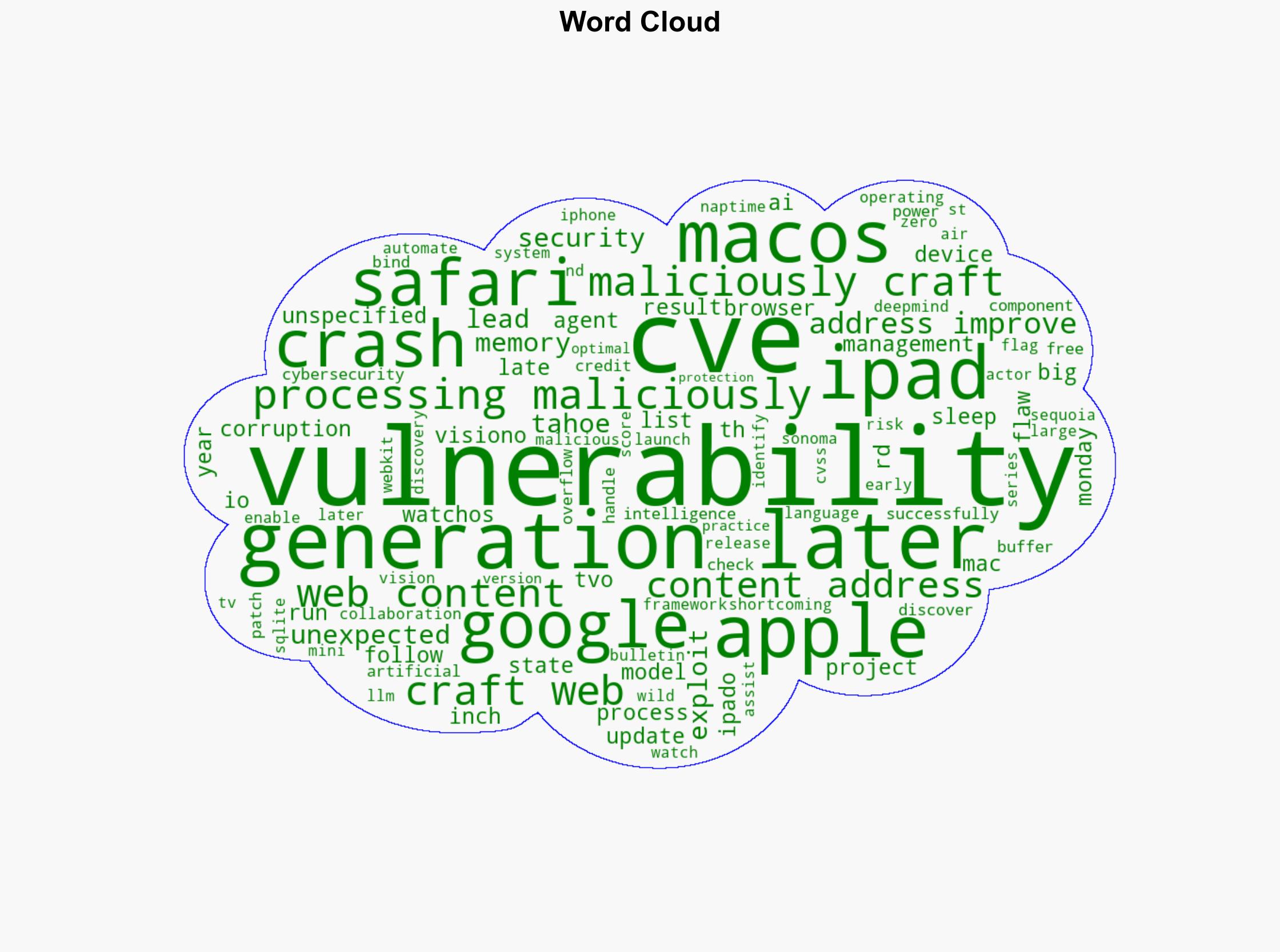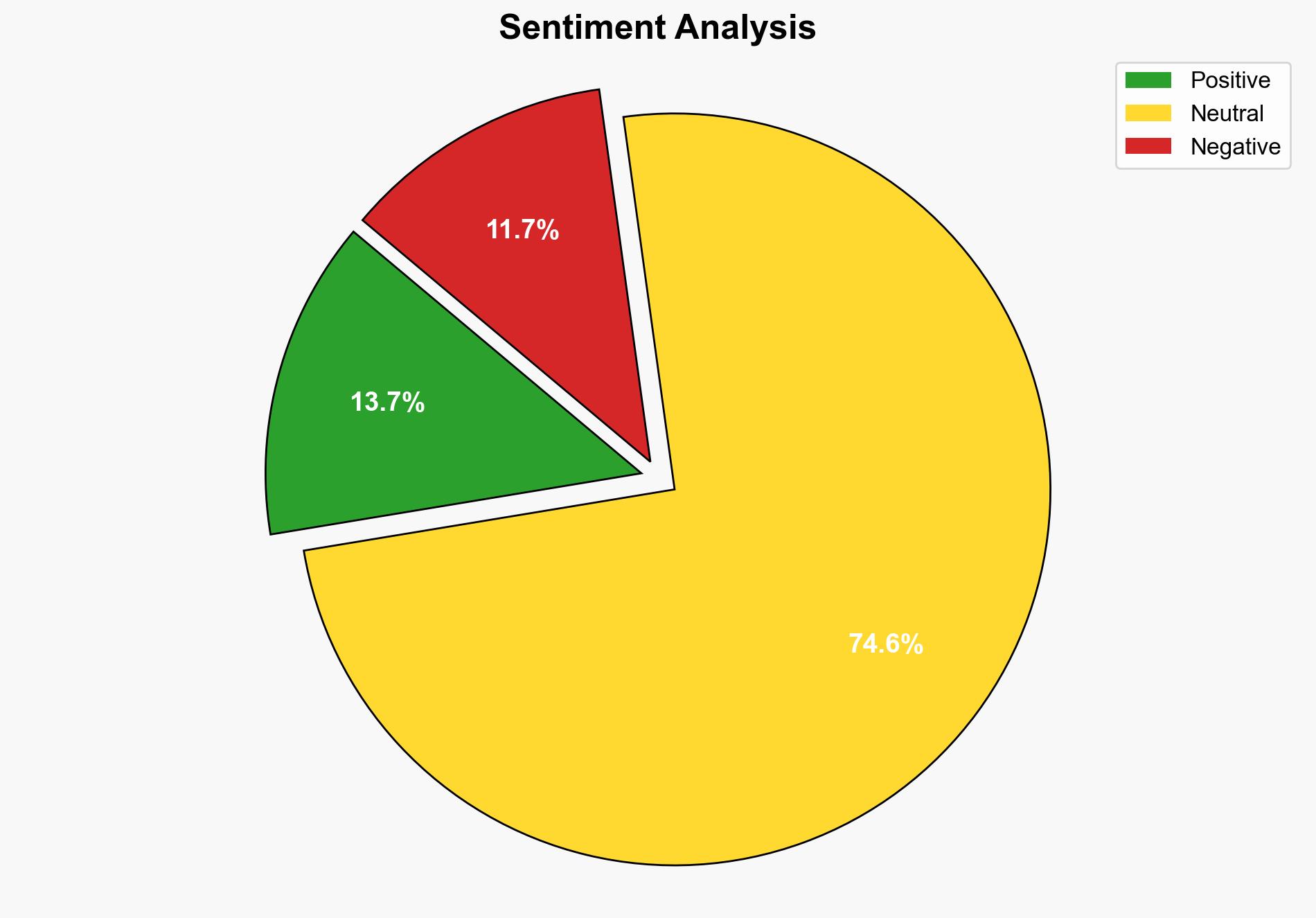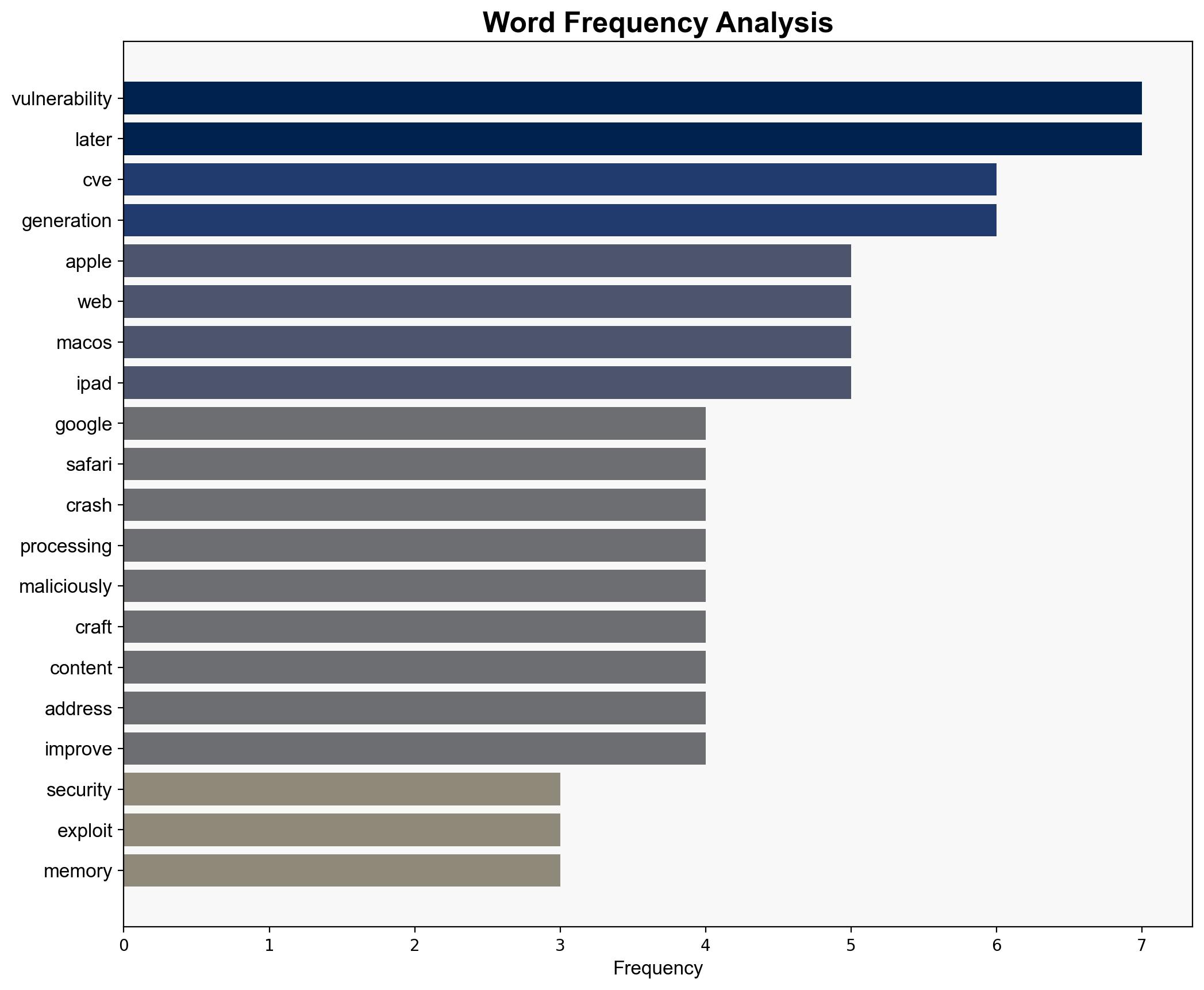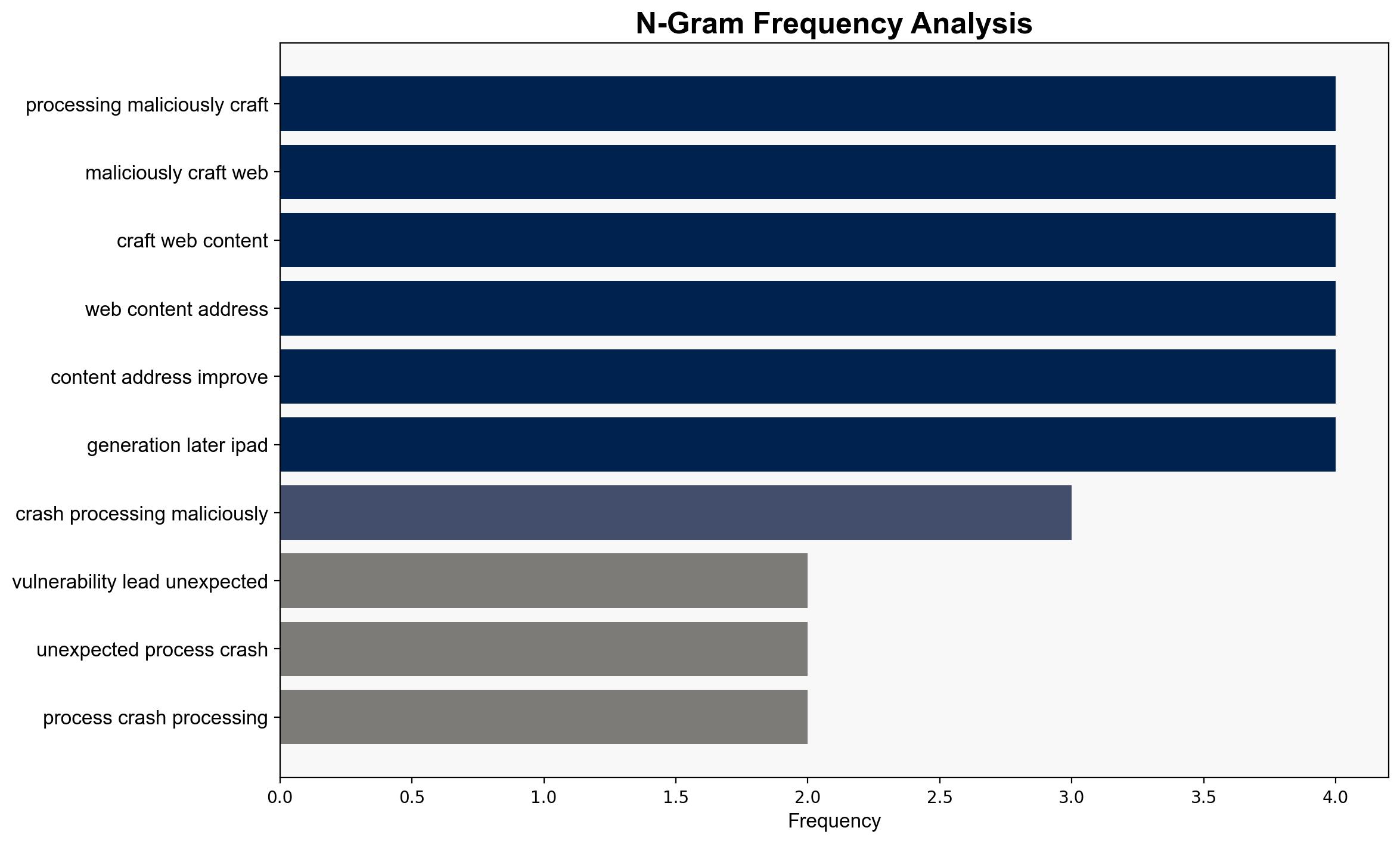Googles AI Big Sleep Finds 5 New Vulnerabilities in Apples Safari WebKit – Internet
Published on: 2025-11-04
Intelligence Report: Googles AI Big Sleep Finds 5 New Vulnerabilities in Apples Safari WebKit – Internet
1. BLUF (Bottom Line Up Front)
The discovery of five new vulnerabilities in Apple’s Safari WebKit by Google’s AI, Big Sleep, highlights significant cybersecurity risks. The most supported hypothesis is that this discovery is a result of Google’s strategic initiative to enhance cybersecurity through AI-driven vulnerability detection. Confidence level: High. Recommended action: Apple should prioritize patch deployment and enhance collaboration with Google to preemptively address potential exploits.
2. Competing Hypotheses
1. **Google’s AI Big Sleep is primarily a cybersecurity initiative aimed at enhancing software security across platforms, including competitors like Apple.** This hypothesis is supported by Google’s history of collaboration with DeepMind and Project Zero, focusing on automated vulnerability discovery.
2. **The discovery of vulnerabilities is a strategic move by Google to undermine Apple’s reputation and market share by highlighting security flaws.** This hypothesis considers the competitive dynamics between Google and Apple, but lacks direct evidence of malicious intent.
Using the Analysis of Competing Hypotheses (ACH) 2.0, the first hypothesis is better supported due to Google’s established track record in cybersecurity research and collaboration.
3. Key Assumptions and Red Flags
– **Assumptions**: It is assumed that Google’s intentions are purely cybersecurity-focused and not competitively motivated. Another assumption is that Apple will respond promptly to these vulnerabilities.
– **Red Flags**: The unspecified nature of some vulnerabilities could indicate incomplete data or potential withholding of information. The timing of the disclosure relative to Apple’s software updates could suggest strategic timing.
4. Implications and Strategic Risks
The vulnerabilities pose immediate cybersecurity threats, potentially exploitable by malicious actors. Economically, they could affect Apple’s brand trust and user base if not addressed swiftly. Geopolitically, this incident underscores the importance of international collaboration in cybersecurity. Psychologically, it may influence consumer perceptions of digital security.
5. Recommendations and Outlook
- Apple should expedite the release of patches and communicate transparently with users about security improvements.
- Google and Apple should consider formalizing a collaborative framework for ongoing vulnerability detection and management.
- Scenario-based projections:
- Best: Apple quickly patches vulnerabilities, enhancing user trust and security.
- Worst: Exploits occur before patches are deployed, leading to significant data breaches.
- Most Likely: Apple patches vulnerabilities with minor reputational impact.
6. Key Individuals and Entities
– Google
– Apple
– DeepMind
– Project Zero
7. Thematic Tags
national security threats, cybersecurity, technology competition, software vulnerabilities





